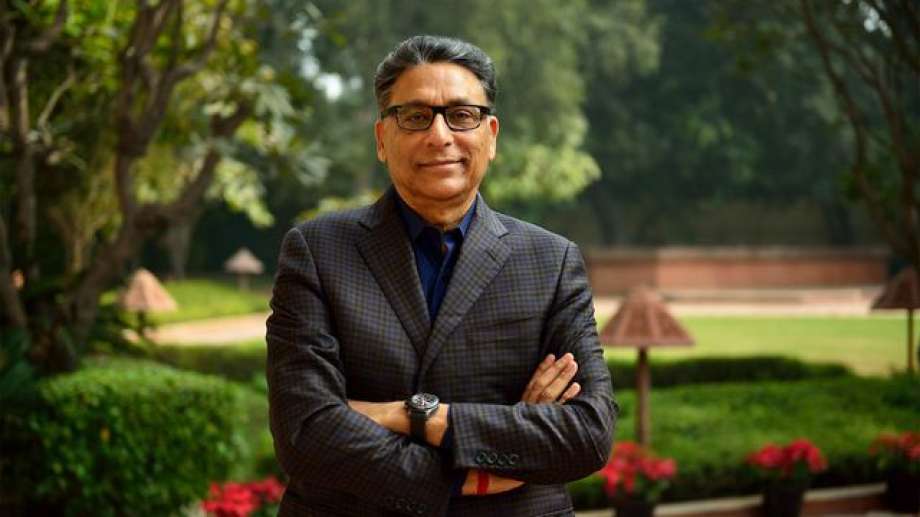There cannot be one yardstick to measure everyone’s potential. Here’s where our education system fails because they call each child different but make them pass the same tests. Today, the spotlight is on a failure, yes, that is what he was called, who did not make his parents proud at first but understood that it is important to follow his passion more than anything.
Vinod Dham is a man who can dazzle anyone with his track record and success. An engineer, entrepreneur and venture capitalist, he is popularly known as Father of Pentium Chip for his contribution to the development of the highly successful Pentium processor of Intel Co. He is a mentor, advisor and sits on the boards of many companies.

But it comes as a shocker to people when they know that this star of the Silicon Valley did not want to pursue engineering in the first place, let alone be an IITian. He wanted to study physics and had enrolled for BSc in Delhi University but at the last moment, his elder brother convinced him to go for engineering instead of a bachelors in Physics. He told him that only engineering would fetch him better-paying job and not graduation in science. Relying on his brother’s advice, Dham enrolled for Electrical Engineering of Delhi College of Engineering.
This was a course which wasn’t dear to Vinod and he almost failed the first year. He hated the mandatory drill he had to go through under NCC (National Cadet Corps). He dragged on half-heartedly for the first three years and began getting interested in the course only in the fourth and last year of his college.
After finishing his degree, the 25-year-old boy left his family to return to his love and went for a Masters degree in Electrical Engineering (Solid State) from the University of Cincinnati, United States. Those were extremely tough days for him as he arrived at this foreign land with merely $8 in his pocket.
According to Business Saga, Dham says, “I was excited about joining UC as they gave me a free scholarship and a Research Assistantship for $325 per month as a graduate student. I was more impressed by the fact that UC had a highly advanced semiconductor.” He landed in the US with mere $8 in his pocket. Back in 1975, the Government of India allowed foreign travelers to exchange rupees for only up to eight dollars.
One could also get additional $20 from RBI, by showing proof that they were going abroad as a student. Unfortunately, Dham could not collect the $20. “So I left with $8, hoping I would collect $325 on arrival to pay for my stay on campus. It turned out that the $325 monthly assistantship pay was only available starting at the end of the first month of doing the research. Upon learning that I had only $8 with me, the foreign student office advanced me a $125 interest free loan from their petty cash to survive the first two weeks – which barely paid for my rent and health insurance leaving little money for food. I gradually paid back the loan over a period of five months by returning $25 per month,” he recalled.
After completing his Master’s degree in 1977, he joined NCR Corp at Dayton, Ohio, as an Engineer, where he did cutting-edge work in developing advanced non-volatile memories. He then joined Intel Co; as an Engineer, where he led the development of the world-famous Pentium Processor. He rose to the position of Vice-President of Micro-Processor Group at Intel Co.
When Dham had joined Intel Co; it was then a mere $663 Million revenue. By the time he left in 1995,Intel’s revenues had soared to $16.2 Billion. He is a man who does not support doing business the Birla or Ambani way because they guarantee profitability yet walk on a carpet of subsidies.
This 66-year-old loved the start-up thrill and now works as the Executive MD of IndoUS Venture Partners, the venture capitalists who funded Snapdeal in its infant stage. He favors college projects more than the ones that come from government researches.

Focus and execute. The reason is that ideas are dime a dozen. What matters is if you can take the idea and translate that into a commercial success. Therein lies 99 per cent of your effort, energy, and time. The second one is what you think you are going to build, most likely is not what it may turn out to be. Therefore, having the flexibility and choosing the right timing of when to pivot is a very important element of being successful. In a start-up, you are moving very fast with somebody else’s money. There is lot of competition. There are a lot of overlapping ideas. Your ability to learn real time, make those mistakes, learn from them, and as we say in the Silicon Valley, ‘fail often, fail fast’.
Looking For Startup Consultants ?
Call Pursho @ 0731-6725516
Telegram Group One Must Follow :
For Startups: https://t.me/daily_business_reads







